Monday,
October 3
EPIC2022 Kickoff
Tutorials
Space is limited: Details & Registration
Space is limited: Details & Registration
Tutorials
Space is limited: Details & Registration
Space is limited: Details & Registration
Tuesday,
October 4
Tutorial
Space is limited: Details & Registration
Tutorials
Sponsor Sessions
![]()
Spotify is the world’s most popular audio streaming subscription service with 433m users, including 188m subscribers, across 183 markets and we are on a mission to unlock the potential of human creativity— by giving a million creative artists the opportunity to live off their art and billions of fans the opportunity to enjoy and be inspired by it.
User Researchers at Spotify help us deep dive into why our users behave the way they do when listening, being a key part of our Product Insights teams. Come and jam with 2 Spotify Recruiters who will talk through some current vacancies, what we typically look for in a candidate and the hiring process in more detail!
Hosts:
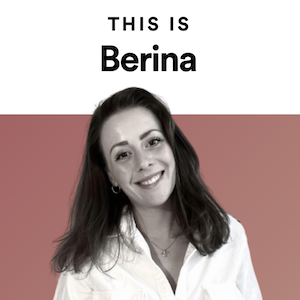
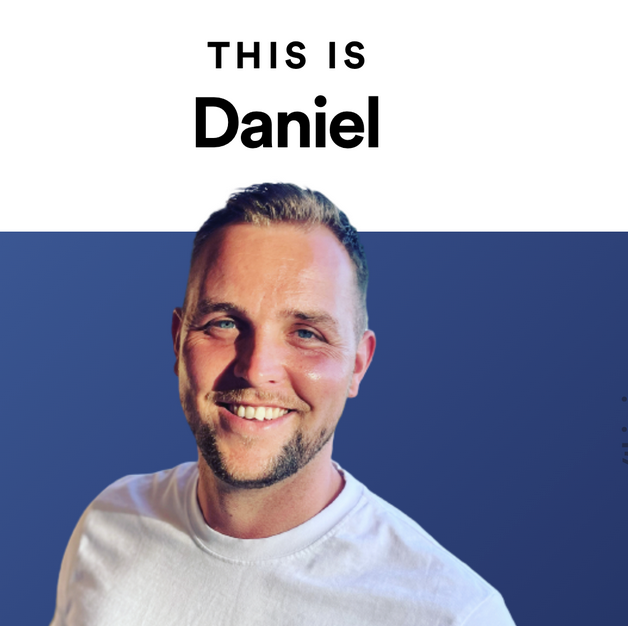
Berina Heco is a Talent Acquisition Partner at Spotify. Her area is to support hiring for Product Insights, including roles such as User Researcher, Data Scientists and Product Insights Managers. Prior to Spotify, Berina did her bachelor studies in HR and worked as a HR generalist in the healthcare sector. When she´s not hiring awesome talent to Spotify, she spends her time traveling, meditating and taking dance classes.
Daniel Baxter has been in the Tech Recruitment space for around 8 years and in that time has worked with start ups, scale ups and now is supporting Spotify with hiring for our Product Insights teams. He is an advocate for equal opportunities for all and ensuring fair and unbiased hiring process. Aside from recruitment he is a Londonder and Chelsea FC fan!
 What are frameworks and how should we use them? Join a session hosted by Stripe Partners, who will share their approach to creating impactful frameworks for client challenges. The session will be interactive—you’ll come away with ideas from how to critique frameworks and use them effectively in your own practice.
What are frameworks and how should we use them? Join a session hosted by Stripe Partners, who will share their approach to creating impactful frameworks for client challenges. The session will be interactive—you’ll come away with ideas from how to critique frameworks and use them effectively in your own practice.
Presenters:

Mujtaba Hameed is a strategist and researcher committed to solving business challenges through deep human understanding. He brings experience from the fields of strategic innovation, brand design, and ethnographic research—especially within the tech sector. Before joining Stripe Partners, most recently Mujtaba was a freelance project lead for Jigsaw (Google) and Adidas. Mujtaba holds an MA in Archaeology & Anthropology from the University of Oxford, and an MSc in Social & Cultural Anthropology from UCL.
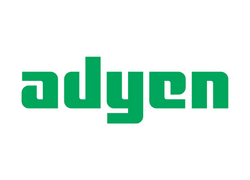
Adyen’s UX research team was created at the beginning of 2020, a time that was turbulent for much of the world. Since its creation, the team has overcome unique growth and development challenges given Adyen’s fast-paced environment and the dynamic FinTech industry in which it operates.
EPIC2022’s theme, Resilience, has made us pause and reflect on what has enabled us to grow and develop as a discipline over the last two years.
Join us to hear about our learnings and share yours!
Presenters:
Katarina Bagherian, VP of UX, Adyen
Tatiana Sidorenkova, UX Research Lead, Adyen
Gunjan Singh, Senior UX Researcher, Adyen
Sponsor Sessions
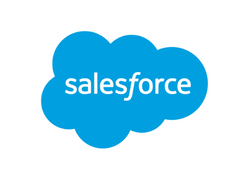 In 2022, you can append almost any sentence with “in uncertain times.” Inflation, global conflict, and our climate crisis—among others—test both our personal and professional resilience and change the way we do business. How do we ensure we’re adapting to effectively connect with our customers and stakeholders with the ever-shifting context of the world around us?
In 2022, you can append almost any sentence with “in uncertain times.” Inflation, global conflict, and our climate crisis—among others—test both our personal and professional resilience and change the way we do business. How do we ensure we’re adapting to effectively connect with our customers and stakeholders with the ever-shifting context of the world around us?
The session will begin with a short share-out from David Gardner, VP, Commerce on Salesforce’s Research & Insights team. We’ll then spend the bulk of the session on Q&A and discussion to connect and discuss.
Salesforce is an EPIC2022 Gold Sponsor
Presenters:
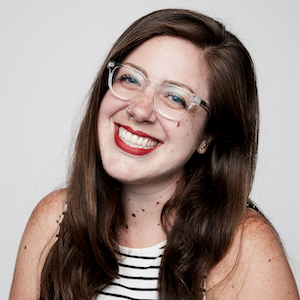
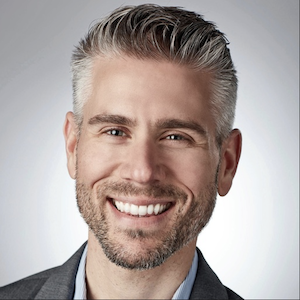
Jayme Brown is the Salesforce Research & Insight team’s senior marketing manager. With a background in storytelling, strategic communication, and digital marketing, she helps the R&I team socialize their insights across Salesforce’s many stakeholders.
David Gardner is VP, Commerce, Research & Insights at Salesforce. As a champion of the voice of the user, customer, and market, David has two decades of experience leading research and insights teams across several industries, including SaaS, retail, CPG, healthcare, and financial services.
Creative Connections
Created and hosted by Sarah Brooks (Distinguished Designer, Strategic Foresight) & Meghan L McGrath (IBM Z Future Demands Lead), IBM
Limit 125 people per session
If anything is resilient, it’s the cocktail/coffee hour. Join us in the post-post-climate dystopian future, where you can swap business cards amidst the smoldering ruins of civilization. We’ll socialize and participate in an imagined future informed by research-based signals/trends around climate change and dwindling non-renewable resources. We’ll co-create beverages and snacks in a world in which many of the key crops of 2022 are no longer available and creative substitutions have to be made: What is the climate dystopian version of the cheese board, cocktail napkins, or small talk? How will human rituals morph and shift, but somehow carry on as the world dramatically changes? And we’ll generate useful conversations about the next steps for our teams and organizations as we explore possible futures.
![]()
Thank you Gemic, EPIC2022 Gold Sponsor, for supporting the EPIC Community!
Platinum Panel — Waymo
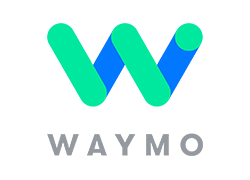
What does mobility research look like today? In the highly mediated world we’ve all become used to operating in—spending hours on end in video conference meetings, assessing trends and practices by way of social media analysis—what does it mean to be human-centered researchers and designers in the age of remote-work? And how do we, as researchers, reflect on and draw from previous jobs and research that shape us most today?
In this session, researchers of the Waymo Insights Team will open their (often remote) coffee break room and reflect on the notion of resilience for their professional and personal selves. We want to pause and reflect together on our role, roots, and challenges as researchers—and invite EPIC attendees to join us.
Panelists:

Jasmine Low is an anthropologist and UX researcher on the Waymo Insights Team, where she works closely with rider communities to understand what is meaningful to them as everyday users of Waymo’s autonomous ride hailing service. Ethnographic in approach, she regularly comes back to the question, “Whose perspective is missing?” to deliver insights and human stories that shape strategy and design across teams at Waymo.
Melissa Cefkin is a member of the Waymo Insights Team where she focuses especially on autonomous driving systems’ interactions with people in the world and on the roads. She has played many roles at EPIC, and has a long career as an anthropologist in industry, including having worked at Nissan-Renault, IBM, Sapient and the Institute for Research on Learning.
Megan Neese leads the Waymo Insights Team, an interdisciplinary team dedicated to informing product strategies and design through a fierce commitment to the people and social-cultural worlds in which autonomous driving technology is operating. Prior to Waymo, Megan was at Nissan Motors, BMW Group Designworks USA, and Samsung Design. She has sat on the Board of Directors for ISDA.
Benedikt Fischer is a Strategist & User Experience Researcher at Waymo where he is leading the company’s research efforts around trucking. Benedikt specialises in using anthropological methods to inform product features, strategies, and concept designs. Before joining Waymo, Benedikt worked as a strategy consultant at ReD Associates in Copenhagen and New York where he led strategy projects with clients across the mobility, pharmaceutical, luxury, and consumer goods industries.
Wednesday,
October 5
Platinum Panel – Atlassian
In this panel, moderated by Head of Research & Service Experience, Leisa Reichelt, Atlassian researchers and data scientists will explore how different crafts, methodologies, and perspectives came together to evolve one of our most important customer archetypes; the champion.
Showcasing the power of a research community, panelists will reflect on how they contributed to the evolution of this critical archetype by employing a range of research methods and cross-craft explorations.
Join us to learn how we applied qualitative data, innovative survey design and partnerships with other crafts to opportunistically apply a refreshed champion concept to emerging business strategies and leadership asks. We’ll discuss how we devised and executed on a research program that applied mixed methods approaches for greater confidence and impact.
Moderator:
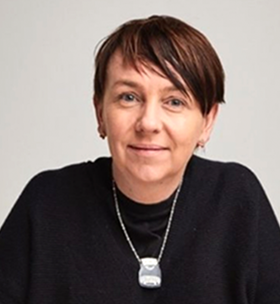
Leisa Reichelt leads the Research and Service Experience team at Atlassian, a company which is already focused on developing and unleashing the potential of all its teams. Having worked in both the UK and Australia, Leisa has spent time building research capabilities within government digital teams, helping them to create easier and more accessible public services. She has consulted with a mix of London tech startups and household name brands such as The Economist, BBC, Virgin Atlantic and many more. Although she loves research, Leisa’s passion is in enabling organisations to transform themselves through gaining a compelling and closer understanding of the user needs they serve.
Panelists:
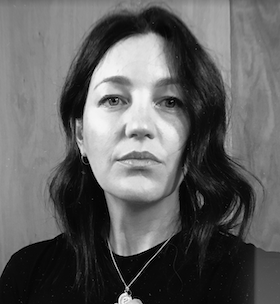
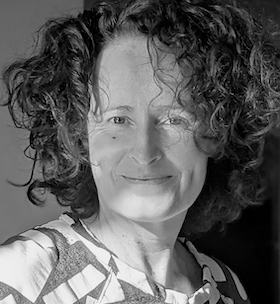
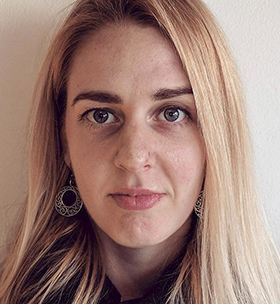

Sarah Hyne is a Lead Researcher at Atlassian. Her background spans graphic design, UX, anthropology, HCD and behavioural science. She’s endlessly fascinated by humans and culture and the ways the design of things affects lives, for better or worse. She works with teams at Atlassian to make our products simpler, smarter, more helpful and more meaningful for customers.
Natalie Rowland, Lead Researcher at Atlassian, is a qualitative researcher dedicated to the craft of design and social research. With a background in market research, video ethnography, and behaviour change, Natalie tunes into emerging needs and strives to bring decision-makers and designers closer to customer needs, environments and goals. She loves learning about teams and more human ways of working and is shaping how Atlassian products work together.
Gillian Bowan, a Lead Researcher at Atlassian, an anthropologist who completed field research in South India before shifting into user experience research in 2013. She has worked in service design for government and in the health sector. Passionate about multidisciplinary teamwork and improving ways of working, she is now at Atlassian, solving problems for all kinds of teams. She has a PhD in anthropology from Macquarie University.
André Jansson is a Senior Product Analyst at Atlassian. Having a keen interest in human behavior and data made product analytics is a perfect match for André. Always striving to understand how and why customers are using products the way they do, and what impact this has to the business as a whole, is something that drives André in his day to day.
Platinum Panel – Booking.com
ith more of our daily interactions taking place online, there are both benefits and barriers for people with disabilities. Work from home setups can helpfully remove the need to transport assistive technology on a daily basis. Frustratingly, many still experience barriers on apps and websites that do not meet accessibility standards.
Booking.com is on a journey to learn from people with disabilities and how they navigate digital and physical environments, to make it easier for everyone to experience the world.
In this session we will provide the background and context on how we see that accessibility and resilience intersect. We will share how researchers at Booking.com are bringing the voice of people with disabilities to product teams to make travel more accessible.
Join us to participate in a range of interactive exercises to explore how this could apply to your work.
Moderator
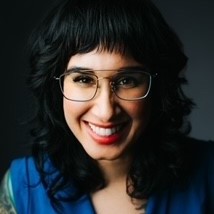
Kirin Khan (she/they), Senior Research Manager, has worked in people management for the past decade, across a range of industries. She directed political polling research at YouGov, developed and led the quantitative research team at Twitter, and joined Booking last year to lead research teams across the Trips and FinTech business units. Prior to working in tech, she focused on non-profit and public policy, and brings her advocacy experience to the forefront as the research leadership sponsor for Sustainability, Accessibility, and Inclusivity taskforce at Booking.
Panelists
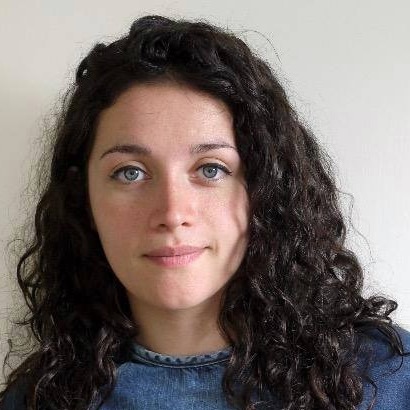
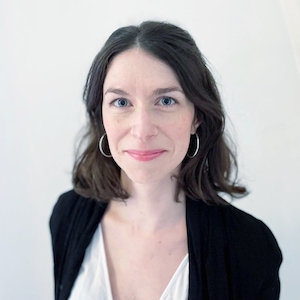

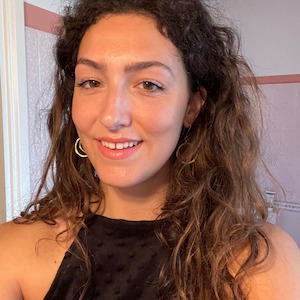
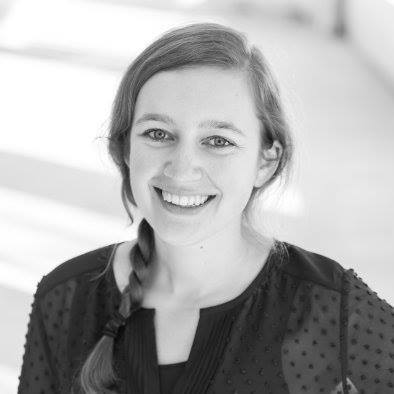
Maya Alvarado (she/her) is a senior user researcher and service designer who specializes in inclusive and accessible design. She applies a hands-on and participatory approach to research, prototyping and development. She is passionate about creating brilliant products and services that make people’s lives easier.
Isabelle Rodot (she/her) has worked as a user researcher at Booking.com for the past 4 years. With a background in product innovation, brand and communication research, she now focuses on sustainability to make it easier for travelers to find and book more sustainable travel options.
Ula Lewicka (she/her) is a researcher supporting Booking.com teams to make the mobile app user experience simple, intuitive, engaging and for everyone. She enjoys trying out new research methods and solving various problems and she loves it when her work improves someone else’s experience!
Alessandra Este (she/her) has worked as a user researcher at Booking.com for the past 5 years. She focuses on Inclusivity across the traveler experience, and leads FinTech partner research as well.
Franca van der Borden (she/her/hers), Senior Researcher, has extensive experience in both marketing research and user experience research. She is an advocate for accessibility and inclusivity. She’s worked at Booking for 6 years, and currently focuses on Trip Horizontals, including the end-to-end traveler experience.
Platinum Panel – Spotify

Over the past 2.5 years, researchers have had to become more resilient and adaptable in how they conduct research. Now that things are bouncing back, we’re at a crossroads in deciding what the future of user research looks like.
In this panel, leading members of Spotify’s product insights community will discuss different perspectives on how researchers have adapted from face-to-face research to remote settings, and the adaptations we intend to keep in a hybrid practice. We will contemplate how this hybrid practice can morph depending on various topics, such as community making and the audio space.
We’ll include some interactive components to encourage dialogue, and it will be a discussion you don’t want to miss!
Moderators:
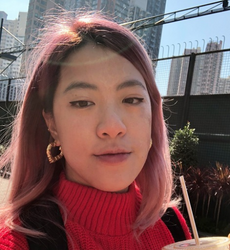
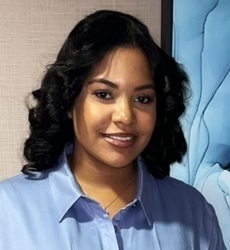
Audrey Tse is a User Researcher at Spotify working on creating a better Messaging user experience for Spotify listeners across the globe and iterating on the backend systems that fuel those messages. She entered the tech research world after receiving her Master’s in Human Computer Interaction with Ergonomics from University College London 6 years ago. Since then, her professional highlights include conducting AR/VR research at Google and organizing events for Hexagon NYC, a UX group for womxn and non-binary folx. Her interest in art, community, and placemaking are additional sources of inspiration for her work.
Karell McDonald is a Research Operations Specialist at Spotify, who works diligently to provide support and guidance to the User Research, Market Research and Data Science communities. In addition to supporting these disciplines in their craft, she also assists in developing innovative processes and programs that will be useful in their day-to-day work. In December 2020, Karell earned her undergraduate degree from Georgia State University and has been navigating through the tech space ever since! She is passionate about team collaboration, creativity, and learning new skills. One of her favorite quotes is, “Success is not final; failure is not fatal: it is the courage to continue that counts.” – Winston Churchill
Panelists:
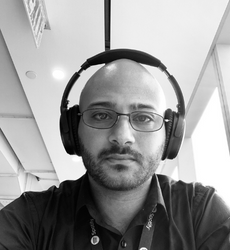
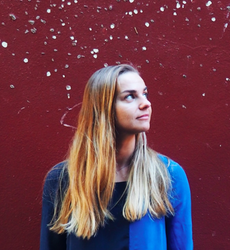

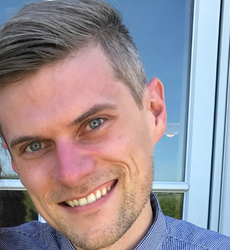
Karim Hamdoun is a Senior Researcher at Spotify. His research mainly focuses on growth in the global south, where he explores how Spotify can be more relevant to new audiences and cultures. Before Spotify, Karim spent more than ten years conducting research in the consumer goods field. Outside work, you can find him traveling all over the world, scuba diving, spending time at the beach, trying different foods and experiences, or watching his favorite sports.
Dominika Mazur is a User Research Manager at Spotify. She specializes in research and strategy that supports user growth with a focus on launching Spotify in new markets and ensuring that it reflects the audio culture and local context. Before joining Spotify, she has done user research in both academic and business settings on a variety of topics such as overcoming stereotype threat, managing personal finances, and making charitable donations. Outside of work, you can find her foraging in the forest, practicing aikido, and making mixed media art.
Alexandra McCarter is a Staff User Researcher at Spotify where she specializes in cultural and strategic insights work. Before Spotify, she worked for 5 years as a Digital Strategist and Researcher at a number of creative agencies in London, UK. She received her masters in Modern South Asian History from the University of Cambridge, and brings her academic background in history and aesthetics to her current work in music and online culture.
Sam Way is a computational social scientist and Senior Research Scientist at Spotify. His research explores topics related to the globalization of music and how listener preferences vary over time and space. Prior to working at Spotify, Sam completed his PhD at the University of Colorado Boulder, where his research focused on the sociology of science and the factors that shape the scientific workforce.
Creative Connections
Created and hosted by Preeti Talwai (UX Research Lead), Keita Wangari (Staff UX Researcher) & Luca Paulina (Senior UX Designer), Google
Limit 75 people per session
Too often, in complex, resource-constrained and fast-paced organizational environments, we design only for the ideal “happy paths”—human journeys get watered down and nuance is pushed to the side. It’s imperative that organizations support the inevitable changes of real life so they can build enduring relationships with the people they serve. In this workshop we’ll build language and tools to re-engage organizations with the messiness, grit and reality of actual life journeys. We’ll walk through an exercise to view human journeys with a “resilience lens” and examine how products and services can be designed to learn and adapt to change. Participants will take away a set of tools to build more robust experiences by anticipating opportunities, mitigating harms, and designing for dynamism.
Creative Connections – Conversations in Resilience
Conversations in Resilience are Salons—an EPIC tradition. We’ll gather in small groups to discuss special topics in ethnography and resilience. Facilitated by hosts who guide participants with inspiring or provocative questions or scenarios, Salons offer a space where attendees share candidly, experiment with evolving ideas, and connect to EPIC people with similar interests. No prep. You’ll choose from the following concurrent conversations on our conference platform:
Inclusive ResilienceDisabled people have always had to be resilient to thrive in a world that is typically not designed for them. The onset of the pandemic highlighted the need for adaptations that have long been advocated by disabled people, with work-from-home being only the most prominent example. Yet, as people adapt to new ways of working and living, and companies increasingly cater to employee and customer desires for flexibility, many in the disability communities have lamented that they are again being left out of recent “progress.” This salon will interrogate the inequities hidden within the now-mainstream idea that we, as a society, are unified in our resilience in the face of the current and ongoing public health crisis, and it will ask how research can learn from the experiences of disabled people to make new adaptations inclusive of everyone.
Host:
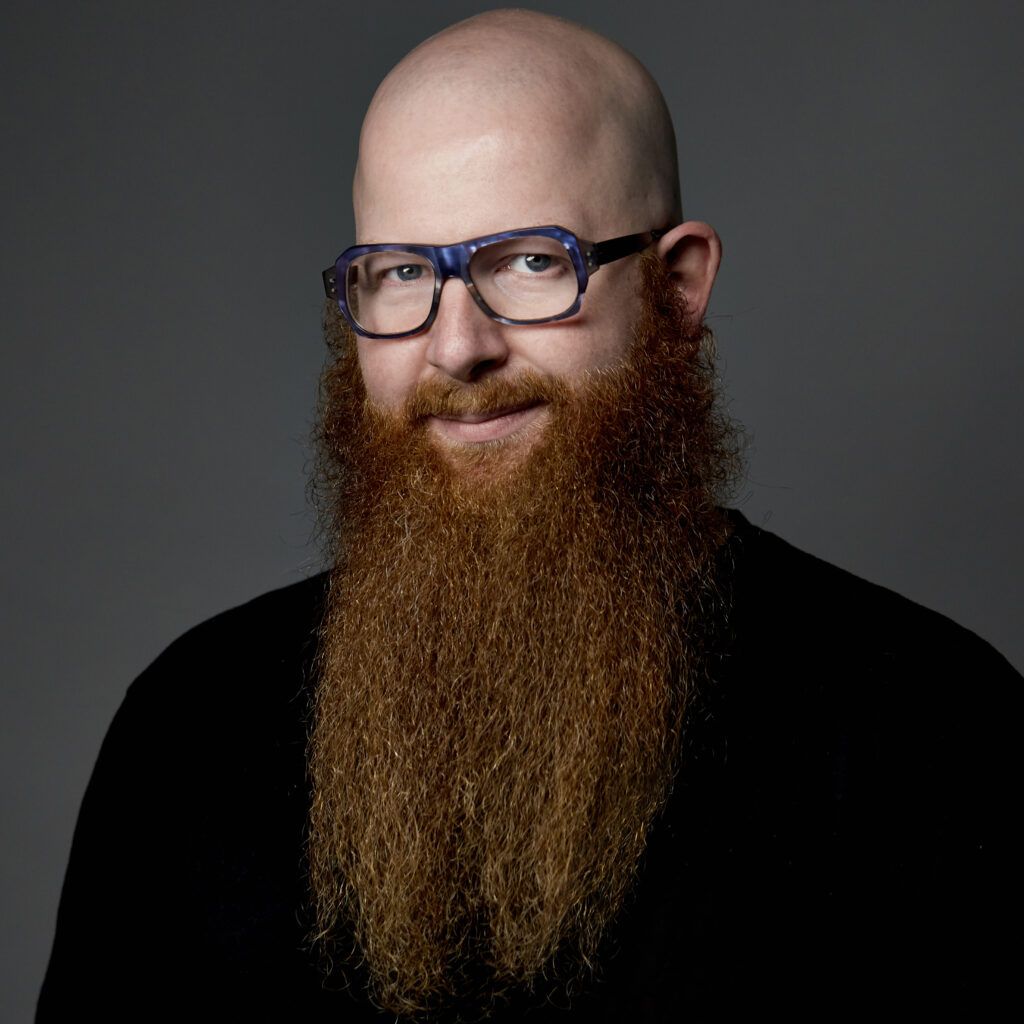
Greg Weinstein is a design researcher who focuses on inclusive research methods to make designs accessible and equitable. In a former life, he was an ethnomusicologist who studied ideologies of sound in recording studios. He is currently the Inclusive Research Lead on CVS Health’s Design Accessibility team.
When COVID hit, the act of social distancing imposed an immediate challenge to all of us. And for ethnographers, the pandemic forced us to think of new ways to be human centred at a distance—both within our organisations, and in relation to our research participants outside them. Its easy to focus on whats been challenging, and maybe even lost. But in this session, I want to invite you to discuss the benefits of being forced to think creatively about how to stay intimate when apart.
The disruptive global event has helped us all to look at classical ethnographic themes like empathy, intimacy and belonging in new, creative ways. What have we learned about resilience through our organizational practices post-pandemic? Perhaps you’ve found new ways of engaging as a team? New rituals or customs to enable coherence in your organisations? How about meaningful conversations about flexibility? Or new normals in terms of remote work?
Host:

Louise Vang Jensen is the anthropological lighthouse of IS IT A BIRD, and as director of research and insights, she is driven by an urge to place human needs and aspirations at the core of the strategic development of organisations. With a track record of collaboration counting VELUX, Novo Nordisk and Nike, Louise has developed a solid innovation toolbox enabling her to tailor approaches, processes and deliverables with a clear focus on real world problems.
At first glance, “resilience” seems an admirable thing to strive for. But if artifacts have politics, surely aspirations are also value-laden and politically motivated. In this session we will explore what is smuggled into the conversation along with “resilience” – who is centred in this concept? Who benefits from whose resilience? How does resilience construct the person? What does a reflexive and reactive acceptance of “resilience” enable or disable? How are we witnessing, enabling, or inhibiting the contestation of this concept? Bring stories, autoethnographies, unease, historical narratives, and inspirational cliches you love to hate. All are welcome.
Host:
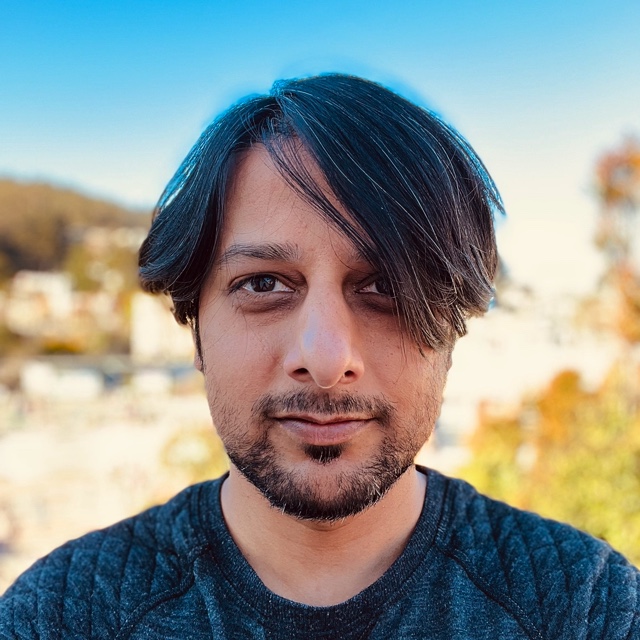 Arvind Venkataramani (he/they) is a senior user experience researcher at HashiCorp, where his stakeholders think he delivers insights into user experience, but where he actually spends his time creating tools and containers for learning, discovery, and collaboration. He dislikes writing third-person bios and would rather you connect with him about systems, ritual, decolonization, embodiment, discourse traps, mindfulness, the sociological eye, and eldritch horrors of the modern era.
Arvind Venkataramani (he/they) is a senior user experience researcher at HashiCorp, where his stakeholders think he delivers insights into user experience, but where he actually spends his time creating tools and containers for learning, discovery, and collaboration. He dislikes writing third-person bios and would rather you connect with him about systems, ritual, decolonization, embodiment, discourse traps, mindfulness, the sociological eye, and eldritch horrors of the modern era.
To have Black Hair is to be constantly designing, constantly prototyping. The number of experiences and products that make having Black Hair a core experience design challenge are countless and include, but are not limited to: physical products such as headwear and beauty products; digital products such as webcams, algorithms, and datasets (or lack thereof); and real life experiences such as shopping in the “Ethnic Hair Aisle” or having one’s hair searched at TSA Security. In this salon, we use Black Hair as a prompt to discuss resiliency by exclusion and formulate new ways of thinking about designing resilient processes that yield inclusive products.
Host:
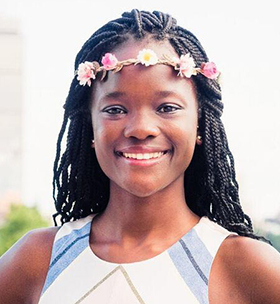 Arwa Michelle Mboya is a designer and researcher in the XR industry, currently working for Magic Leap. She has a Bachelor of Arts from Yale University and a Master’s of Science from the MIT Media Lab. While at MIT, Arwa studied the implications of immersive technology on the imagination. She led the first Pan-Africa AR/VR Hackathon in Nairobi and designed a new VR headset (based on Oculus Go) as a result of research on how women in informal settlements interact with VR. Arwa is from Nairobi, Kenya.
Arwa Michelle Mboya is a designer and researcher in the XR industry, currently working for Magic Leap. She has a Bachelor of Arts from Yale University and a Master’s of Science from the MIT Media Lab. While at MIT, Arwa studied the implications of immersive technology on the imagination. She led the first Pan-Africa AR/VR Hackathon in Nairobi and designed a new VR headset (based on Oculus Go) as a result of research on how women in informal settlements interact with VR. Arwa is from Nairobi, Kenya.
With its power of unfolding behavioral and social patterns, ethnographic research has recently gained a lot of attention in industry. More and more companies hire ethnographers as pathfinders, strategic researchers, and UX Researchers to learn more about their target audiences and existing users. There is no doubt that this is a positive shift for both ethnographers, who have more opportunities to conduct research, and companies that benefit from ethnographic research’s holistic insights about their new and existing users. However, how resilient has ethnography been in industry (e.g., tech companies), especially in light of recent crises, such as the pandemic, and research teams being downsized due to layoffs? In this salon, we will dive deeper into conversations about the resilience of ethnography in fast-moving companies, the ideas and practices of ethnography that have been maintained, heavily practiced, changed, and lost by ethnographers who work in industry. We will also have discussions about ways to maintain resilience from social and emotional perspectives.
Hosts:
 Ayfer Gokalp is an anthropologist, investigating ways to make AR/VR technologies safe and trustworthy. Ayfer currently manages VR Platform Privacy, Integrity, and Youth Safety UX Research team in Reality Labs at Meta. Ayfer is a thought leader in integrity, privacy, and inclusion areas, pioneering in the way women experience future technologies, including AR and VR. With her in-depth expertise and versatility, Ayfer is a trusted support by leadership, delivering critical insights that lead to shaping the direction and vision of the products. She dreams of a world where everyone is accepted for who they are and their unique identities are cherished as their superpowers. Ayfer firmly believes in the power of future technologies as a way to build a more inclusive and empowering world. She holds a PhD in Linguistic Anthropology from Arizona State University and actively publishes articles and presents at conferences in anthropology and UX research areas.
Ayfer Gokalp is an anthropologist, investigating ways to make AR/VR technologies safe and trustworthy. Ayfer currently manages VR Platform Privacy, Integrity, and Youth Safety UX Research team in Reality Labs at Meta. Ayfer is a thought leader in integrity, privacy, and inclusion areas, pioneering in the way women experience future technologies, including AR and VR. With her in-depth expertise and versatility, Ayfer is a trusted support by leadership, delivering critical insights that lead to shaping the direction and vision of the products. She dreams of a world where everyone is accepted for who they are and their unique identities are cherished as their superpowers. Ayfer firmly believes in the power of future technologies as a way to build a more inclusive and empowering world. She holds a PhD in Linguistic Anthropology from Arizona State University and actively publishes articles and presents at conferences in anthropology and UX research areas.

Marie Mika is a sociologist and Staff Researcher at Included Health, leading virtual primary care research. Previous clients include Ford, Genentech, Google, Hyundai, and Whirlpool, and she is proud that her studio’s game won Google Play’s 2019 Best of Casual Games. Please feel free to contact her at marie.mika@includedhealth.com.
Thursday,
October 6
Creative Connections – Conversations in Resilience
Conversations in Resilience are Salons—an EPIC tradition. We’ll gather in small groups to discuss special topics in ethnography and resilience. Facilitated by hosts who guide participants with inspiring or provocative questions or scenarios, Salons offer a space where attendees share candidly, experiment with evolving ideas, and connect to EPIC people with similar interests. No prep. You’ll choose from the following concurrent conversations on our conference platform:
Reinventing resilience ritualsUpheavals in the last three years have highlighted cracks and fissures in our standard operating principles. How do we bring the value of resilience into our everyday lives? Do erstwhile methods endure, or do we need to rethink the way we shape and build resilient practices? This salon invites participants to reflect and share how their own definitions and rituals around resilience may have been restructured. What individual and shared experiences with resilience—at both micro and social or systemic levels—have shaped us, and what can we learn as a community from these?
Host:
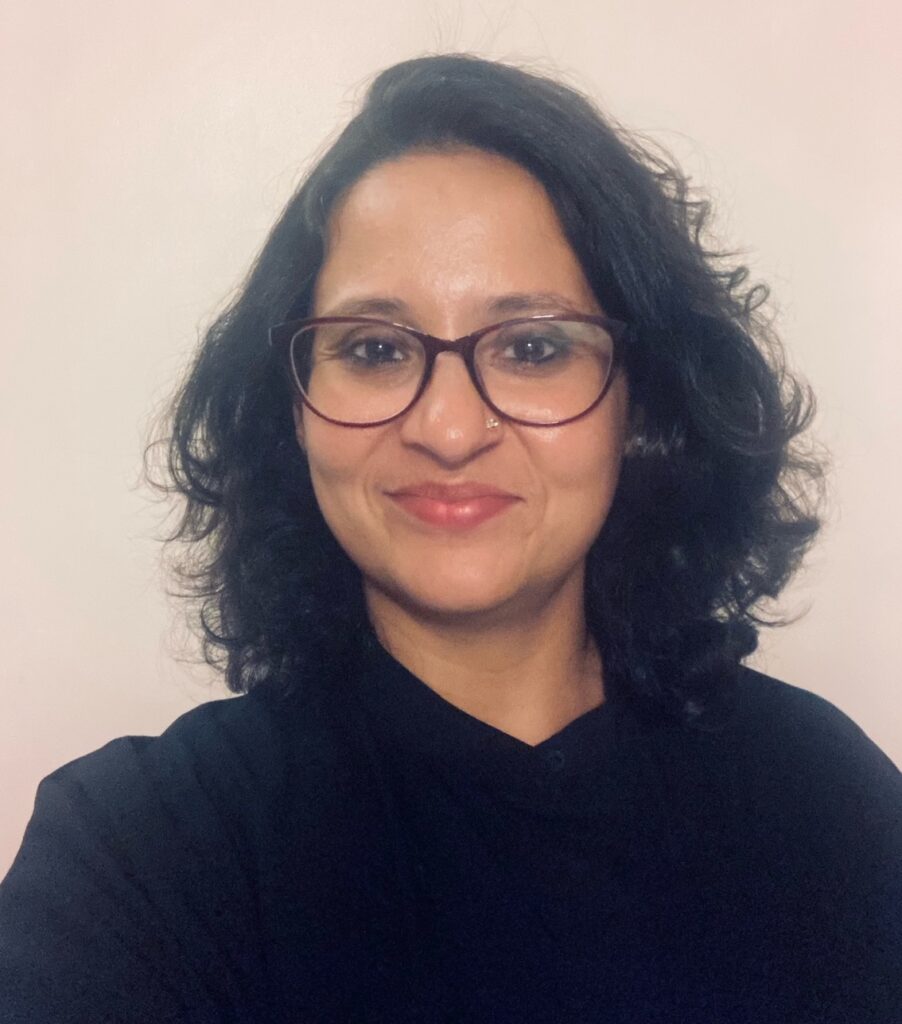
Sunandini Pande Ray has been working at the intersection of understanding people, culture and communication, in India and the Middle East. She has built her career within consumer research and insights—asking questions, connecting the dots and staying fascinated with the world outside and the world within. She focuses on situating human insights at the heart of strategy and building a deeper, more empathetic and inclusive understanding of consumer ecosystems.
Does the notion of resiliency encourage us to romanticise our ability to maintain or reinstate anything in the face of continual flux? Could the idea of responsiveness offer an alternative? Perhaps responsiveness invites new avenues of engagement rather than fears of loss or discontinuity. This debate will cut to the heart of existential epistemologies, encouraging us to question the extent to which we act upon the world or experience the world acting upon us.
Hosts:
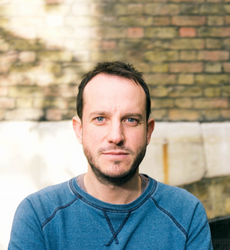
Dr Oliver Pattenden is an anthropologist who defines ethical opportunities for companies, charities, and governments by decoding human experiences, values, and behaviours. He is currently the Global Research and Insight Director at the Sustainability Studio, Accenture Song, the firm’s flagship centre for sustainability innovation. His projects focus on ethical creativity, social impact, experience strategy and product design, digital innovation, brand positioning and communications, scenario planning and organisational transformation. Oliver holds a PhD in anthropology from Rhodes University, specialising in phenomenology (experience), temporality, ethics, and sustainability. He is author of Taking Care of the Future: Moral Education and British Humanitarianism in South Africa.

Lilith Wacker works as Business Anthropologist specialized in informing business strategy and innovation through ethnographic research and human insight. Currently working at Accenture Song, her most recent projects focused on gaining a deep understanding of complex cultural phenomena like the meaning of money in women‘s life and how this affects financial inequality or the meaning of sustainability in peoples‘ daily context. Since 2008 Lilith has been planning, conducting and analyzing ethnographic studies in various business areas like health care & pharma, financial services and insurance, automotive, consumer electronics, manufacturing engineering and organizational change for companies around the globe. Lilith holds a Master’s in cultural studies from Leuphana University of Lüneburg, specializing in music, business administration, media and public relations, legal and economic sciences.
This salon will revolve around an interactive conversation on the role of ethics in reslilience. The means through which we collect data, and the depth of the data we touch, is evolving as our relationship with technology does. We need to create resilience in our relationship with both subjects and stakeholders while navigating privacy and data in the current data climate. This conversation will pose the following key questions to attendees:
What are the ethical boundaries that are in most jeopardy today? What are the issues facing them? Do these ethical principles need protecting? What are our roles, as ethnographers and practitioners of anthropology and social research, in maintaining ethical boundaries? Should we find the balance between ethical considerations and business objectives? If yes—how? If no—what next?
Host:

Nikki Lavoie is EVP, Global Experience Strategy of Savanta. Nikki has been working in research and insights for over 15 years, first starting as a qual/quant hybrid researcher within marketing insights, and then moving over to UX and CX work at the start of the digital interaction boom. Having started and sold her own qualitative UX agency—MindSpark Research International—she is now part of the Savanta team, and is leading the expansion of the company’s global experience offering.
In 2022, the concept of resilience across the world can’t be an issue driven only by governments, multinationals, and for-profits. To support our collective future, resiliency must be an issue we adapt to every part of human society. However, many communities don’t know why resilience matters to their future. This salon will build a space that imagines resilience as everyday praxis. By offering The Movement Institute, an organizing accelerator for changemakers in Arkansas as inspiration, we’ll discuss how our local organizations, our personal communities, and our lives should become sites for resiliency. This discussion will brainstorm and utilize useful methods, stories, and resources that make resilience praxis a tabletop discussion.
Host:
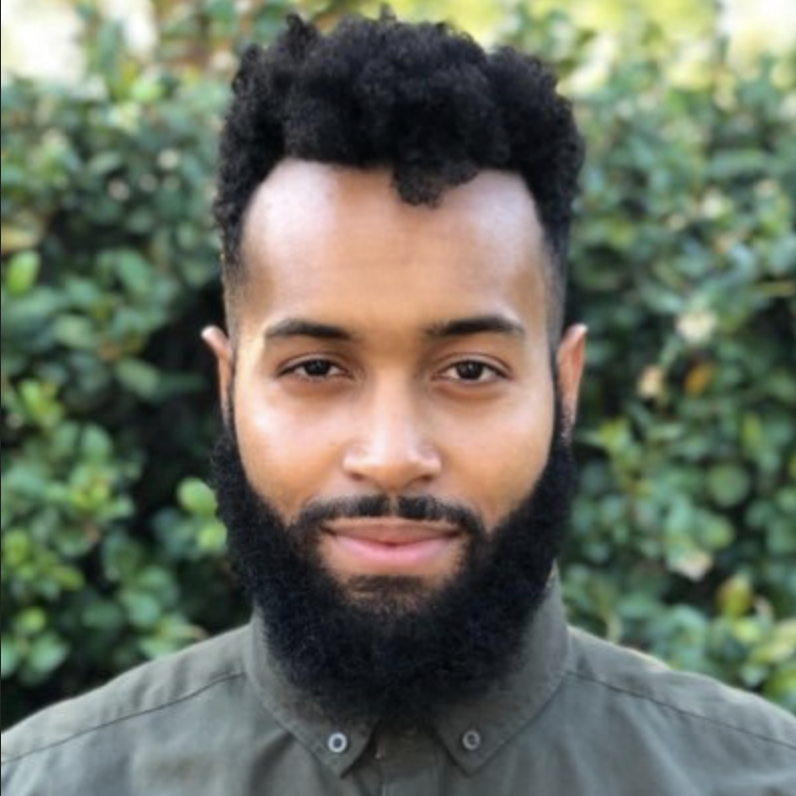 Dr. Pierce Otlhogile-Gordon is an innovation catalyst, researcher, facilitator, and evaluator, impassioned by the space between transformation and liberation. As the Director of the Equity Innovation studio at Think Rubix, a Black-led social innovation consultancy, Dr. Gordon serves as a shepherd for Equity Innovation to shape our collective future. He’s taught courses in design, evaluation, international development, and equity across four continents, co-designed partnerships, products, and services with local and international changemakers to support social change, and researched the complexity, evaluation, and emergence of design and innovation across the world.
Dr. Pierce Otlhogile-Gordon is an innovation catalyst, researcher, facilitator, and evaluator, impassioned by the space between transformation and liberation. As the Director of the Equity Innovation studio at Think Rubix, a Black-led social innovation consultancy, Dr. Gordon serves as a shepherd for Equity Innovation to shape our collective future. He’s taught courses in design, evaluation, international development, and equity across four continents, co-designed partnerships, products, and services with local and international changemakers to support social change, and researched the complexity, evaluation, and emergence of design and innovation across the world.
Creative Connections
Lydia O.Neill and Megan Anderson (D-Ford)
This workshop gives participants a hands-on window into how D-Ford, Ford’s human-centred design unit, is working to demystify foresight work and make it more accessible and actionable for fast-moving design teams. We will run an online ‘Signals Session’, which will result in a co-created collection of weak signals around a chosen theme. Participants will leave with an understanding of a collaborative approach to foresight work, its risks and benefits, and how similar methods can be adapted for their own work contexts. In doing so, we aim to stimulate reflection on the theme of resilience at a higher level.
100 Questions for Ethnographers
Make new connections with EPIC people from North and South America and Asia Pacific! We’ll use fun questions about work, food, nostalgia, movies, music, and more as prompts. Created and hosted by Maria Arguello (Google)
Tutorials
Sponsor Sessions

We believe that Gemic is a great example of a truly resilient company that came to being amidst the crisis of 2008 and was able to double the size during the global pandemic. During this session we would like to share how the company has evolved over time and what stayed unchanged. We are going to share this story through our personal journeys at Gemic, as well as the work we do for our clients and how we do it.
Gemic is an EPIC2022 Gold Sponsor
Presenters:
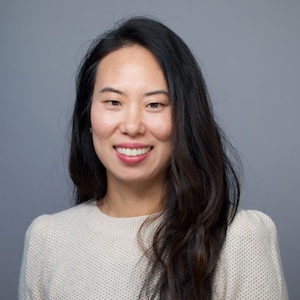
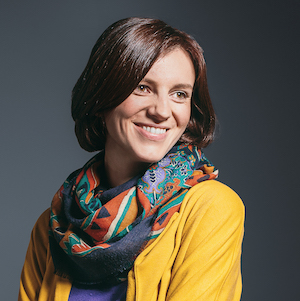

Rebekah Park is a Partner based in Gemic’s New York City office and works primarily within tech and healthcare. She has spent the last two decades applying anthropological theory and methods to create change through her work in business, academia, public policy, and NGOs. Previously, she worked at ReD Associates, was a tenure-track professor at Marlboro College in Vermont, and worked at policy think tanks including the Poverty and Race Research Action Council and African American Policy Forum. Rebekah holds a PhD in Anthropology from UCLA, a MA in Applied Medical Anthropology from University of Amsterdam (the Netherlands) where she was a Fulbright scholar, and a BA in American Studies from Northwestern University.
Liubava Shatokhina is Research Lead based in Gemic’s Helsinki office. She believes that anthropological imagination paired with critical thinking can uniquely inform complex business decisions. Intensely curious about human behavior and the cultural factors that shape it, Liubava has worked with companies across automotive, tech, food, facility management and more to develop systemic approaches to innovation and growth. Liubava holds three master’s degrees, in the philosophy of culture, comparative sociology, and cultural anthropology. Before joining Gemic, Liubava worked as a researcher at the Center for Science and Technology Studies at the European University at St. Petersburg, taught social science in and outside academia, and organized art events to foster social change.
Todd Carmody is a Senior Strategist based in Gemic’s New York Office. He is an innovation and strategy consultant, the author of a book on social policy and the future of work, and an expert in the U.S. and German markets. He draws on his interdisciplinary expertise and global perspective to help clients act on what is not yet common sense. Todd holds a Ph.D. from the University of Pennsylvania and has been a research fellow at Harvard, Berkeley, and the Freie Universität Berlin. At Gemic, he advises senior leaders in social technology, mobility, and higher education, among other sectors.
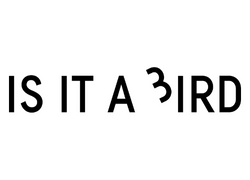
Accelerating, blitz scaling, failing fast to succeed sooner. These are just a few examples of a fundamental paradigm in innovation – that it is all about the high pace! It is as if speed itself is a goal.
In our session we want to reflect on the pace of innovation. Drawing on 10 years of experiences as innovation consultants at the Copenhagen based agency IS IT A BIRD, we have come to believe that a disproportionate focus on the high pace phases of innovation can obscure something else that is at least as important. Slowing down the pace. Changing the energy. Focusing on being instead of doing, on observing, listening and sensing, as crucial elements of any investigation and exploration of what is emerging. We argue, that there are times where we need to act fast, and times where we need to stand still in order to detect what is moving around us.
In our session we want to invite for a discussion on this topic. How do you see us utilizing different rhythms at different times in the creative process. And how do you see us planning our processes to accommodate for both fast and slow paces and optimise the positive impact?
IS IT A BIRD is an EPIC2022 Silver Sponsor
Presenters


Rasmus Thomsen has more than 15 years’ experience as a business consultant on strategic innovation. He has a unique eye for identifying new business opportunities and is heavily inspired by Design Thinking, in which he is educated from d.school at Stanford University. He works effortless in the cross section between business, design and research, giving a natural focus on desirability, feasibility and viability in innovation projects for clients such as Nike, Henkel and Maersk.
Louise Jensen is our anthropological lighthouse and as managing director of research and insights. She is driven by an urge to place human needs and aspirations at the very core of the strategic development of organisations. With a track record of collaboration counting VELUX, NOVO and NIKE Louise has developed a solid innovation toolbox enabling her to tailor approaches, processes and deliverables with a clear focus on real world problems. Louise puts her skills into play both when driving analytical processes, and when building up innovation capacity in client organisations.
 Hosts:
Hosts:
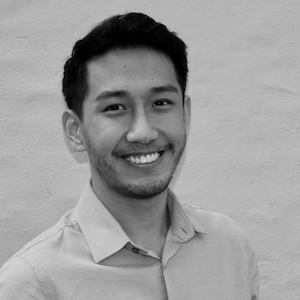
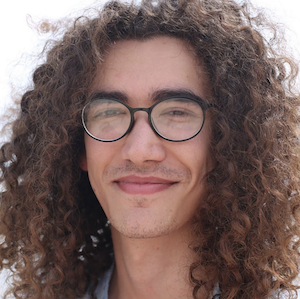
Fred Guo is a Senior Consultant based in ReD’s Paris office. His experience spans across multiple sectors from healthcare to luxury consumer goods, always providing clients with tangible recommendations in the areas of marketing, design innovation, and strategic value propositions. Prior to joining ReD, Fred has worked in investment banking in New York, education in Shanghai, and luxury hospitality in London, while also holding the rank of Full Lieutenant in the Singapore Armed Forces. Fred graduated from Williams College with a triple major in Economics, Political Science and French.
Ariel Abonizio is a Brazilian anthropologist, strategist, and artist based in New York City. As a Senior Consultant at ReD Associates, Ariel has worked primarily in the technology industry, helping clients disentangle the technical, social, and emotional components that undergird consumer behaviors for social media, AR/VR, chip manufacturing,
Career Connections
Created and hosted by: Veronica Hotton, Ecochallenge.org & co-instructor, Representing Your Professional Self
Limit 20 people per session
When you’re making a career shift, or even just exploring the landscape of possibilities, informational interviews are a key strategy to learn, network and advance your goals. They offer a structured format for engaging with an experienced mentor or peer that can yield concrete information as well as unexpected insight and inspiration. Some tips and strategies—plus practice with supportive EPIC members—can make them much more rewarding for you and the people you interview.
This event is designed for people at any career stage making a shift, whether you have your eye on a new role, industry or sector, or you are transitioning out of academia. You’ll be matched with EPIC members who have volunteered to be interviewed for two rounds of 20-minutes. Tips and interview guides will be provided to help you prepare. The guides will include a range of topics, such as sector/role transitions, workplace culture, and general career mentorship; you can adapt them to your own purposes or take a totally different approach.
This event is especially useful for those who find networking awkward or daunting, but know they want to be able to network more often and with a little more ease and grace. Using ethnographic and social science approaches to informational interviews, we can let those butterflies in our stomachs rest. And with practice, it’s possible to see these interactions as another kind of interview we are skilled at using throughout our careers. And really, don’t we love listening to people share their stories? Seats in this session are limited, so register early!
Creative Connections
Created and hosted by Preeti Talwai (UX Research Lead), Keita Wangari (Staff UX Researcher) & Luca Paulina (Senior UX Designer), Google
Too often in complex, resource-constrained and fast-paced organizational environments we design only for the ideal “happy paths”—human journeys get watered down and nuance is pushed to the side. It’s imperative that organizations support the inevitable changes of real life so they can build enduring relationships with the people they serve. In this workshop we’ll build language and tools to re-engage organizations with the messiness, grit and reality of actual life journeys. We’ll walk through an exercise to view human journeys with a “resilience lens” and examine how products and services can be designed to learn and adapt to change. Participants will take away a set of tools to build more robust experiences by anticipating opportunities, mitigating harms, and designing for dynamism.
Sunday,
October 9
Soundwalk
Soundwalks can be many things, but fundamentally they are about actively observing and engaging with the sounds of a place as you move through it. Participants will pause to listen along the way, to discover the social and built environment of central Amsterdam.
Sign up here.
Canal Boat Ride
Take in Amsterdam’s beautiful canals and explore key hotspots with this 2-hour tour.
The deadline to sign up is Friday, Sept 30. Sign up here.
Sketchwalk
Create your own sketches while walking through the streets and canals of Amsterdam. Participants will learn about the urban sketch movement and materials and form small groups to go sketching, before reconvening with others.
Sign up here.
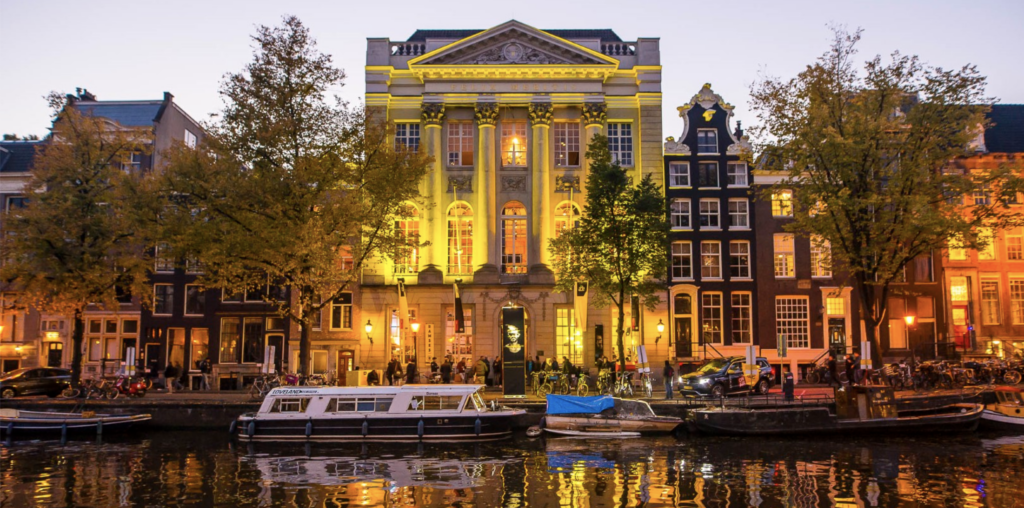
Opening Reception & Exhibition
Celebrate together in our incredible historic venue Felix Meritis in the Amsterdam canal district, a UNESCO historical site. You can also connect with research leaders and recruiters at EPIC2022 Sponsor exhibits.
Meet our ethnographer-DJ Oliver Pattenden! DJs and ethnographers aren’t so different from each – we all learn our craft so we can respond in the moment, observe and interpret social scenarios, like to be two-steps ahead of what’s in front of us, and obsess about culture. To illustrate the point while providing a much-needed soundtrack to proceedings, committed DJ and ethnographer Oliver Pattenden will be playing some hidden gems and well-loved classics from his collection. When he’s not spinning records, Oliver is Global Research and Insight Director of The Sustainability Studio at Accenture Song.
DJs and ethnographers aren’t so different from each – we all learn our craft so we can respond in the moment, observe and interpret social scenarios, like to be two-steps ahead of what’s in front of us, and obsess about culture. To illustrate the point while providing a much-needed soundtrack to proceedings, committed DJ and ethnographer Oliver Pattenden will be playing some hidden gems and well-loved classics from his collection. When he’s not spinning records, Oliver is Global Research and Insight Director of The Sustainability Studio at Accenture Song.
Monday,
October 10
Coffee
Keynote: Payal Arora
 Payal Arora is a digital anthropologist, Professor at Erasmus University Rotterdam, and Co-Founder of FemLab, a future of work initiative. Her expertise lies in user experience in the global south, digital inequality, and inclusive design. Forbes named her the “next billion champion” and the “right kind of person to reform tech.”
Payal Arora is a digital anthropologist, Professor at Erasmus University Rotterdam, and Co-Founder of FemLab, a future of work initiative. Her expertise lies in user experience in the global south, digital inequality, and inclusive design. Forbes named her the “next billion champion” and the “right kind of person to reform tech.”
(+ livestream)
Coffee
Virtual Session
In this session, we’ll explore how we have used our passions, interests and leisure activities as resources to manage and mitigate the effects of burnout at work.
Host: Stefan Choo, Queensland University of Technology
Concurrent Sessions
The contributions in this session highlight the power of collaborative, dialectic narratives in unpacking resilience. Through humor, storytelling, visualization and linguistic craft, these contributions offer insight into various lenses that we can use to examine the work we do and the footprint it leaves on others and ourselves.
Cultivating Resiliency for All: The Necessity of Trauma-Informed Research Practices (Paper)
Matthew Bernius, Code for America
Rachael Dietkus, Social Workers Who Design
Mapping the Messy: Storytelling-as-Resilience, Reframing, Academia-as-Fieldsite (PechaKucha)
Lisa Koeman, Elsevier
Laughing All the Way to EPIC (PechaKucha)
Evan Hanover, Conifer Research
Resilience requires us to go past established processes, tools and frameworks as our guides. These presenters shift our perspective on the theories that guide our work, renew our attention to what we know about positionality, reflexivity, place and practice, and even consider ways in which our practices are performative acts. The Papers and PechaKuchas in this session share a commitment to ensuring that the techniques we build and employ are flexible and adaptive to dramatic change.
Theory Instruments as Tangible Ways of Knowing (Paper)
Jessica Sorenson, University of Southern Denmark
Mette Gislev Kjærsgaard, University of Southern Denmark
Jacob Buur, University of Southern Denmark
Mary Karyda, University of Southern Denmark
Ayşe Özge Ağça, University of Southern Denmark
Beyond Zoom Fatigue (Paper)
John Sherry, Intel
Ethnography as a Feedback Loop: Designing Complex, Automated Systems (Paper)
Kelsie Nabben, Royal Melbourne Institute of Technology
Michael Zargham, Vienna University of Economics & Business
Resilient Credit (PechaKucha)
Rachel Aalders, Australian National University
Show Must Go On: How Can Ballet Help Us Strengthen Ethnographic Practice? (PechaKucha)
Almina Karya Odabasi, Vrije Universiteit Amsterdam
Cato Hunt, Space Doctors
Curator: Guillaume Montagu, unknowns
Our current language of business is no longer fit for purpose. We are all sharply aware of the urgent need to transition into a regenerative economy, yet the words we use are holding us back. We must stop using vocabulary which roots us within a failing system and instead create a new lexicon of resiliency. By introducing new concepts and metaphors we can redefine organizational success through new values and behaviors which embody the changes we must make. Join us for a LIVE 3-day hive mind where we come together to co-create some inspiring new starting points for this journey.
(+ livestream)
Wildcard Installations (all day)
Grant Cutler, Independent Artist
Curator: Allegra Oxborough, AERO Creative
Divergent listening describes a listening practice which seeks to raise consciousness or expand on our understanding of reality through the perception of sound. The multichannel sound installation, ‘Silence’, offers a space of quiet reflection, a place to ask questions, share, or rest. It is a room to imagine a more inclusive future, a world of resilience, energized by the clamorous singing of countless life forms. The installation invites participants to immerse themselves in the soundscapes of dozens of endangered natural environments and reflect on the change that an enhanced listening practice might bring to their own lives, work, and environments.
Rita Costa Pereira (Stripe Partners), Simon Roberts (Stripe Partners), Charley Scull (Meta)
Curator: Guillaume Montague, unknowns
This interactive poster examines the enduring but often overlooked cultural meaning of the laptop, through multiple lenses (e.g. design, technology, marketing) and across the arc of the device’s existence. What began as a complementary foundational component for a larger project on the future of VR, became a living deliverable of its own that evolved through a mutually beneficial feedback loop with primary ethnographic research. Key among our learnings were the ways in which the interactive visual format drove stakeholder engagement while providing a more dynamic approach to foundational learning.
Lunch
Catered lunch to be enjoyed in the beautiful historic rooms of the Felix Meritis, or taken with you on a midday outing.
Concurrent Sessions
The Papers and PKs in this session address resilience in method and practice when confronted with uncertain and adverse situations. When and how does agency, self-awareness, creativity and the imagination become fundamental to the work we do? How do we make the very methods we use resilient when our subjects are uncertain? What stake do these approaches have in making futures for our subjects and for our very practice?
Rehearsing Imagined Futures: Creative Performance as a Resilient Process Among Refugees (Paper)
Nicole Aleong, University of Amsterdam
Building Resilient Futures in the Everyday: Virtual Worlds and the Social Resilience of Teens During COVID-19 (Paper)
Julian Gopffarth, Stripe Partners
Rebecca Jablonsky, Google
Cath Richardson, Stripe Partners
Beneath the Hype: Self-Ethnography to Explore the Human Possibilities within NFT Technology (PechaKucha)
Jake Silva, Meta
Becoming Digitally Resilient: Understanding the Gap between Online Government Services and Low Ability Users (PechaKucha)
Yoni Lefevre, STBY bv
Dorota Gazy, STBY bv
Navigating Matters Charged with Controversy (PechaKucha)
Stefani Bachetti, Motorola Solutions
More and more corporations are taking responsibility for societal change and the mark they leave within the world, demonstrated by how they focus on diversity in advertising or inclusive design practices. Public organizations, by definition, are rooted in a society-based purpose, but are believed to be slow-moving in implementing decisions. Yet, we’re also seeing a shift in governments recognizing the need to accelerate digital transformation and innovation. In this session, we learn from four case studies across the public and private sectors that demonstrate ethnography leading the way: creating resilient organizations and resilient futures for the public good. Participate in this session if you are curious about designing better social systems, large-scale implementation of ethnographic methods in public organizations, diversity representation in advertising, and technology inclusion for people with hearing impairment.
How a Government Organization Evolved to Embrace Ethnographic Methods for Service (and Team) Resilience (Case)
Colin MacArthur, Bocconi University
Mithula Naik, Canadian Digital Service
Designing and Envisioning a More Resilient Social System (Case)
Sofia Carvalho, With Company
Dismantling Stereotypes: Taking an Inside-Out Perspective to Building Better Representation in Advertising for Unilever (Case)
Stephanie Barrett, Quantum Consumer Solutions
Designing and Conducting Inclusive Research: How a Big Tech Company and an Online Research Platform Partnered to Explore the Technology Experiences of Users who are Deaf and Hard of Hearing (Case)
Dana Gierdowski, Lenovo
Karen Eisenhauer, dscout
Peggy He, Lenovo
Wildcard
Chelsea Mauldin, Public Policy Lab
Natalia Radywyl, Today – Australia
Curator: Katrina de Haan, Giant Machines
This wildcard session is a conference-wide co-creation activity. Together, all EPIC attendees will reflect on the dynamic relationship between resilience and power. Then, through a facilitated, real-time activity, we’ll collectively generate an actionable power-redistribution framework — a set of strategies for EPIC members to embed social resilience in their work, whether at a major tech or consumer firm, a government agency, or a consultancy. A designed artifact that captures this framework will then be produced and distributed by the end of the conference to the entire EPIC community.
(+ livestream from Concertzaal & Zuilenzaal)
Coffee
Virtual Session
Grab a coffee or tea and join Zarla Ludin (Research Director, Craft) and Maria Vidart-Delgado (Sr Design Researcher, Xero) online to debrief and discuss key takeaways from your favorite presentations.
Concurrent Sessions
In Town Halls, all attendees have the opportunity to share, explore and debate about core issues around resilience and ethnographic work. They are facilitated by leaders in the EPIC community who will offer reflections, provocations and wisdom to guide our conversations.
Concertzaal

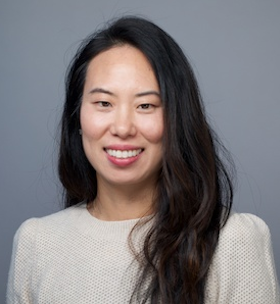
Leisa Reichelt leads the Research and Service Experience team at Atlassian, a company which is already focused on developing and unleashing the potential of all its teams. Having worked in both the UK and Australia, Leisa has spent time building research capabilities within government digital teams, helping them to create easier and more accessible public services. She has consulted with a mix of London tech startups and household name brands such as The Economist, BBC, Virgin Atlantic and many more. Although she loves research, Leisa’s passion is in enabling organisations to transform themselves through gaining a compelling and closer understanding of the user needs they serve.
Rebekah Park is a Partner at Gemic based in New York, working primarily within tech and healthcare. She has spent the last two decades applying anthropological theory and methods to create change through her work in business, academia, public policy, and NGOs. Previously, she worked at ReD Associates, was a tenure-track professor at Marlboro College in Vermont, and worked at policy think tanks including the Poverty and Race Research Action Council and African American Policy Forum. Rebekah holds a PhD in Anthropology from UCLA, a MA in Applied Medical Anthropology from University of Amsterdam (the Netherlands) where she was a Fulbright scholar, and a BA in American Studies from Northwestern University.
Zuilenzaal
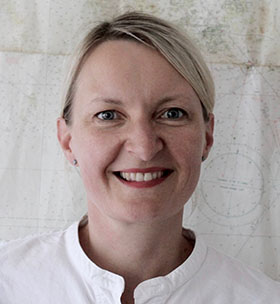
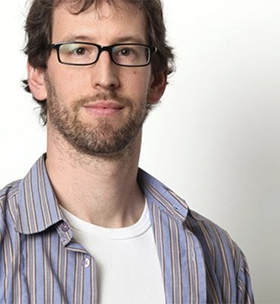
Heli Rantavuo is Director of Product Insights at Spotify, working at the intersection of innovation, design and ethnography. Heli has worked as applied researcher and research leader at eBay, Microsoft and Nokia, and as academic researcher at LSE, Waseda University and Aalto University, where she also earned her Doctor of Arts in New Media Design. She mentors at start-ups and gives industry talks on human-centred design and applied ethnography. Heli is co-founder and board member in the Human Sciences in Strategy Finland association and member of the steering committee for the EPIC2022 conference. She loves sailing, winter swimming and cocktails with Campari.
Martin Ortlieb is a user experience researcher at Googler Germany currently looking at how to keep knowledge workers productive, happy and committed at work. He researches processes of integrating the best work tools with human social needs to build effective teams and a resilient company culture. This is a long-standing interest: his PhD focused on the imagination of identity through conceptions of work, and he has published on conceptualizations of ‘culture’ in commercial ethnography. Giving back to the communities that nurture and host Martin both is really important to Martin, like being a member of the steering committee for the EPIC2022 conference. He recently went demonstrating with Greta Thunberg, just adopted two kittens, and likes good conversation.
(+ livestream)
Concurrent Sessions
This session has an attendee limit; please sign-up in advance at the information desk to participate.
Wildcard
Kelly Shetron, Facilitator, Writer, and Community Builder
Allegra Oxborough (AERO Creative)
Nate Mahone (eBay)
Curator: Hema Malini, Red Crane Films
In this workshop, we’ll share a structured autoethnographic practice based in feminist consciousness-raising and in somatic awareness to unpack how bias shows up in our lives as white people in white supremacy culture. We’ll explore how to increase our awareness of white supremacy culture’s harms, becoming more resilient in our ability to identify, discuss, and work through difficult realities. This session provides first-hand experience and tools for raising awareness, allowing us to recognize and interrupt bias in our personal and professional lives.
Virtual Session
Watch party, discussion & meet-up hosted by Jamie Sherman, Senior Researcher, Atlassaian
Keynote: Payal Arora Payal Arora is a digital anthropologist, Professor at Erasmus University Rotterdam, and Co-Founder of FemLab, a future of work initiative. Her expertise lies in user experience in the global south, digital inequality, and inclusive design. Forbes named her the “next billion champion” and the “right kind of person to reform tech.” Read more about keynote speakers
Payal Arora is a digital anthropologist, Professor at Erasmus University Rotterdam, and Co-Founder of FemLab, a future of work initiative. Her expertise lies in user experience in the global south, digital inequality, and inclusive design. Forbes named her the “next billion champion” and the “right kind of person to reform tech.” Read more about keynote speakers
Resilience requires us to go past established processes, tools and frameworks as our guides. These presenters shift our perspective on the theories that guide our work, renew our attention to what we know about positionality, reflexivity, place and practice, and even consider ways in which our practices are performative acts. The Papers and PechaKuchas in this session share a commitment to ensuring that the techniques we build and employ are flexible and adaptive to dramatic change.
Theory Instruments as Tangible Ways of Knowing (Paper)
Jessica Sorenson, University of Southern Denmark
Mette Gislev Kjærsgaard, University of Southern Denmark
Jacob Buur, University of Southern Denmark
Mary Karyda, University of Southern Denmark
Ayşe Özge Ağça, University of Southern Denmark
Beyond Zoom Fatigue (Paper)
John Sherry, Intel
Ethnography as a Feedback Loop: Designing Complex, Automated Systems (Paper)
Kelsie Nabben, Royal Melbourne Institute of Technology
Michael Zargham, Vienna University of Economics & Business
Resilient Credit (PechaKucha)
Rachel Aalders, Australian National University
Show Must Go On: How Can Ballet Help Us Strengthen Ethnographic Practice? (PechaKucha)
Almina Karya Odabasi, Vrije Universiteit Amsterdam
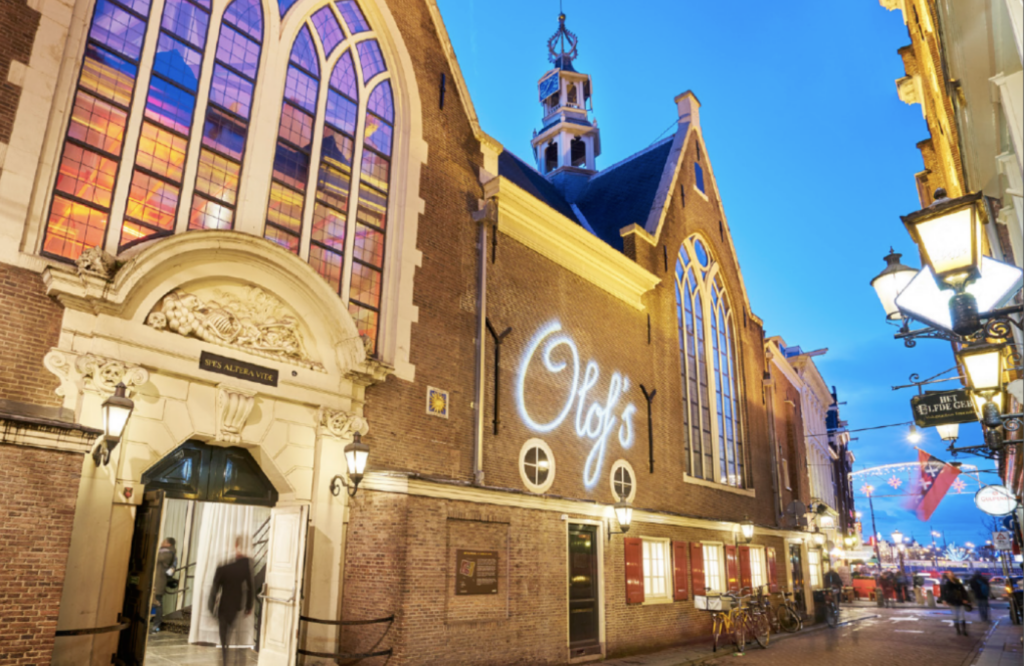
Conference Dinner: Saint Olof’s Chapel
Since its construction in the 15th century, Amsterdam’s oldest chapel has housed everything from Catholic and Protestant worship to stock exchanges, a weekly cheese fair, and now the EPIC2022 dinner! Purchase tickets (US$90) with your conference registration.
Tuesday,
October 11
Coffee
Keynote: Kurt Ward

Kurt Ward is a Senior Design Director at Philips Healthcare, based in the Netherlands. His goal is to design sustainable and adaptable health systems by redefining the social determinants of health and reframing humanity’s relationship with the natural world.
(+ livestream)
Coffee
Virtual Session
In this session, we will reflect on songs that have thematically resonated with us in trying situations and contexts. We’ll explore aspects of these songs, such as lyrics and tempo, that transformed our lived experiences. Then, Stefan Choo will perform songs that cultivated resilience for him.
Host: Stefan Choo, Queensland University of Technology
Concurrent Sessions
This session critically evaluates conventional ideas and practices resilience to reveal paradoxes and pitfalls. The Papers and PechaKuchas will show how resilience can be either a toll or an opportunity to create systems of reciprocal care. Presenters also provide tools and fresh ideas to reframe the concept of resilience in turbulent times.
Jobs Not to be Done: Anti-Work Politics and the Resilience of Mutual Aid (Paper)
Todd Carmody, Gemic
Against Resiliency: An Ethnographic Manifesto (Paper)
Lauren Rhodes, Cisco
Jillian Powers, Cognizant Technologies
Beyond Representation: Using Infrastructure Studies to Reframe Ethnographic Agendas and Outcomes (Paper)
Karl Mendonca, Google
Resisting Resilience: An Anthropologist’s Paradox (PechaKucha)
Nadya Pohran, University of Cambridge
Social Resilience (PechaKucha)
Jenny Rabodzeenko, Allstate
Kelly Costello, Women Initiating New Directions (WIND)
Resilience: Lessons from a Period of Disruption (PechaKucha)
Traci Thomas, BCG Platinion
Wildcard
Zosha Warpeha
Curator: Allegra Oxborough, AERO Creative
In this session, violinist and composer Zosha Warpeha will speak about her artistic research in Norway, which involved an immersive study of Nordic traditional music and the creation of a new body of artistic work. This session will illustrate a participatory model of ethnographic research through which the artist built an embodied knowledge of traditional music and laid the groundwork for artistic exploration and expansion. She will discuss the tension between two visions of preservation—one that captures a tradition in a single moment in time and one that allows the tradition to organically evolve alongside a community—and make the case for the necessity of innovation as a method of preservation and resilience. This session will include musical demonstrations and a short performance of original music inspired by tradition.
This session has an attendee limit; please sign-up in advance at the information desk to participate.
Wildcard
Jonathan DeFaveri, Headspace Health
Chelsea Coe, Headspace Health
Curated by Allegra Oxborough, AERO Creative
What forms of our pandemic adaptation have also become barriers to connection? In this session, we’ll examine the aspects of resilience that support – and sometimes hold us back from – the intimacy and safety we seek to create as ethnographers. We’ll begin by sharing our personal experiences navigating this tension as researchers working in mental health and then lead the group in a partner exercise to explore these themes and offer space to connect and listen. We’ll close with a guided reflection on the experience and the role of interpersonal connection, deep listening, context, and the physical environment in our practice.
(+ livestream from Concertzaal & Zuilenzaal)
Wildcard Installation (all day)
Rita Costa Pereira, Stripe Partners
Simon Roberts, Stripe Partners
Charley Scull, Meta
Curator: Guillaume Montague, unknowns
This interactive poster examines the enduring but often overlooked cultural meaning of the laptop, through multiple lenses (e.g. design, technology, marketing) and across the arc of the device’s existence. What began as a complementary foundational component for a larger project on the future of VR, became a living deliverable of its own that evolved through a mutually beneficial feedback loop with primary ethnographic research. Key among our learnings were the ways in which the interactive visual format drove stakeholder engagement while providing a more dynamic approach to foundational learning.
Lunch
Catered lunch to enjoy in the beautiful historic rooms of the Felix Meritis, or taken with you on a midday outing.
Concurrent Sessions
How can researchers and ethnographers stay resilient in times of crisis? This session will explore specific contexts of crises and catastrophes, in addition to caregiving moments where resilience is vital. Presentations approach resilience as a theoretical and ethnographically driven analytical process, illustrating in-context perceptions, survival strategies, modes of adaptation, and lessons for renewed resilience practices.
The Giving Caregivers: Resilience as a Double-Edged Sword in the Context of Healthcare (Paper)
Juliana Saldarriaga, A Piece of Pie
Amplifying Resilient Communities: Identifying Resilient Community Practices to Better Inform Health System Design (Paper)
Romit Raj, Quicksand Design Studio
Babitha George, Quicksand Design Studio
Cristin Marona, Matchboxology
Rebecca West, Ipsos
Annabel Gomez, Independent Technical Advisor
Tracy Pilar Johnson, The Bill & Melinda Gates Foundation
Aditya Prakash, Quicksand Design Studio
Sunny Sharma, Ipsos
Ayushi Biyani, Quicksand Design Studio
Mrittika Barua, James P Grant School of Public health, BRAC University
Cal Bruns, Matchboxology
With the Phone in the Field: Making the Ethnographic Toolbox Resilient to Change (PechaKucha)
Signe Helbo Gregers Sørensen, Alexandra Institute
The Myth of The Pipeline Problem: Creating a Diverse and Thriving Team (PechaKucha)
Kristin Zibell, AnswerLab
Shakima Jackson-Martinez, AnswerLab
There is a general belief that moving fast (and in some cases, breaking things) is a competitive advantage for business—but this ethos can be at odds with deeper knowledge building and strategic foresight, which are the hallmarks of strong ethnographic insights. These cases re-frame ethnography as a resilient method within shifting organizational structures and needs. They offer specific frameworks and practices for utilizing contextually rich human stories to not only keep ethnography resilient, but also in service of a resilient organization.
Navigating the Next with Resilience: Global Portfolio Strategy in a World of Uncertainty (Case)
Giulia Gasperi, TRIPTK
Creating Resiliency of Research Findings: Using Ethnographic Methods to Combat Research Amnesia (Case)
Kristen Guth, Reddit
Cybersecurity in the Icelandic Multiverse (Case)
Meghan McGrath
This session has an attendee limit; please sign-up in advance at the information desk to participate.
Wildcard
Marc Coenders, Independent Scholar
Floor Basten, Independent Scholar
Curator: Guillaume Montagu, unknowns
In our game, we challenge participants to playfully examine and rethink stories about awakening in the climate crisis using a diversity of frames for analyzing underlying epistemic assumptions. The game thus opens ways to creatively reconsider and renew our ideas about knowledge construction in the past and for the future. With this, we hope to contribute to the emergence of new designs for learning and education for resilience.
Wildcard
David Goren, Independent Audio Documentarian
Curator: Jake McAuliffe, ReD Associates
A sonic ethnography centered around an interactive sound map of Brooklyn’s pirate radio stations serving West Indian, Latino, and Orthodox Jewish neighborhoods. Drawing from eight years of radio airchecks, interviews with station operators, listeners, and their opponents, the presentation will examine the cultural and political forces that created this illegal grassroots radio community, its uncertain future, and the methodology behind the project.
(+ livestream from Concertzaal & Zuilenzaal)
Coffee
Virtual Sessions
In this session, participants will share drawings, poetry, artwork and/or music that has helped them overcome self-doubt and sabotage. The group will reflect on how various forms of art can cultivate mindfulness and resilience. Then, Stefan Choo will perform a short program of songs.
Host: Stefan Choo, Queensland University of Technology
Grab a coffee or tea and gather with virtual attendees to debrief and discuss key takeaways from your favorite presentations.
Hosts: Zarla Ludin (Research Director, Craft) and Maria Vidart-Delgado (Sr Design Researcher, Xero)
Open Space
Open Space is a fluid meeting framework in which participants create agendas and work in parallel sessions around our central theme.
Virtual Session
Ethnographers who use Systems Thinking play an important role in enabling the resilience of people and organizations. Understanding the big picture and complex relationships beyond the ‘user’ or ‘customer’ enables better strategic direction of projects and adaptation to change.
In this session, we will explore how ethnography allows for change, adaptation, and survival by applying a systemic approach to a range of situations. Participants will exchange experiences and discuss how systemic approaches can be applied to their work contexts.
Host:

Ana Filipa Couvinhas, OutSystems
Virtual Session
Watch party, discussion & meet-up hosted by Jamie Sherman, Senior Researcher, Atlassaian
Critical Perspectives on Embracing ResilienceThis session critically evaluates conventional ideas and practices resilience to reveal paradoxes and pitfalls. The Papers and PechaKuchas will show how resilience can be either a toll or an opportunity to create systems of reciprocal care. Presenters also provide tools and fresh ideas to reframe the concept of resilience in turbulent times.
Jobs Not to be Done: Anti-Work Politics and the Resilience of Mutual Aid (Paper)
Todd Carmody, Gemic
Against Resiliency: An Ethnographic Manifesto (Paper)
Lauren Rhodes, Cisco
Jillian Powers, Cognizant Technologies
Beyond Representation: Using Infrastructure Studies to Reframe Ethnographic Agendas and Outcomes (Paper)
Karl Mendonca, Google
Resisting Resilience: An Anthropologist’s Paradox (PechaKucha)
Nadya Pohran, University of Cambridge
Social Resilience (PechaKucha)
Jenny Rabodzeenko, Allstate
Kelly Costello, Women Initiating New Directions (WIND)
Resilience: Lessons from a Period of Disruption (PechaKucha)
Traci Thomas, BCG Platinion
There is a general belief that moving fast (and in some cases, breaking things) is a competitive advantage for business—but this ethos can be at odds with deeper knowledge building and strategic foresight, which are the hallmarks of strong ethnographic insights. These cases re-frame ethnography as a resilient method within shifting organizational structures and needs. They offer specific frameworks and practices for utilizing contextually rich human stories to not only keep ethnography resilient, but also in service of a resilient organization.
Navigating the Next with Resilience: Global Portfolio Strategy in a World of Uncertainty (Case)
Giulia Gasperi, TRIPTK
Creating Resiliency of Research Findings: Using Ethnographic Methods to Combat Research Amnesia (Case)
Kristen Guth, Reddit
Cybersecurity in the Icelandic Multiverse (Case)
Meghan McGrath
Wednesday,
October 12
Coffee
Keynote: Melissa Gregg
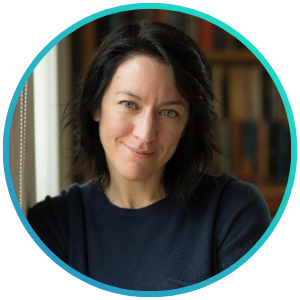 Melissa Gregg is a senior principal engineer in user experience driving carbon reduction and green software strategy at Intel. With a PhD in gender and cultural studies, she is a widely cited author, theorist, and ethnographer, with over 60 peer-reviewed publications and books. Her research has appeared in Wired, Fast Company, Fortune, The New York Times, The Guardian, BBC and CBC, and has been translated into Russian, Mandarin and Korean.
Melissa Gregg is a senior principal engineer in user experience driving carbon reduction and green software strategy at Intel. With a PhD in gender and cultural studies, she is a widely cited author, theorist, and ethnographer, with over 60 peer-reviewed publications and books. Her research has appeared in Wired, Fast Company, Fortune, The New York Times, The Guardian, BBC and CBC, and has been translated into Russian, Mandarin and Korean.
(+ livestream)
Closing Session & the EPIC2023 Big Reveal!
(+livestream)
